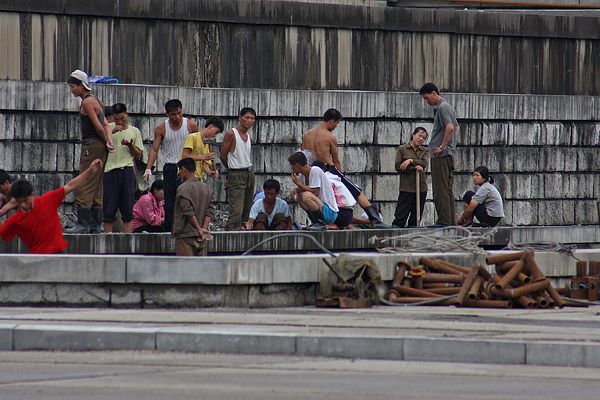Thousands of North Koreans are being sent to Russia to work under slave-like conditions, filling a severe labour shortage caused by Moscow’s war in Ukraine, the BBC has learned.
South Korean intelligence officials say Russia is increasingly turning to Pyongyang not only for weapons such as missiles and artillery shells but also manpower, with over 10,000 North Korean labourers dispatched last year and potentially up to 50,000 expected. Many arrive on “student visas” to bypass a 2019 UN ban on overseas North Korean labour, implemented to cut off funding for Kim Jong Un’s regime.
Interviews with six defectors paint a grim picture: men forced to work up to 20-hour days building high-rise apartments, with only two days off a year. Workers are confined to construction sites, watched by North Korean state security agents, and sleep in overcrowded, bug-infested shipping containers or unfinished buildings. Injuries go untreated, and wages often just $100-$200 a month are withheld until they return home, with most of the earnings sent directly to Pyongyang as “loyalty fees.”
Conditions have worsened since the start of the war. Supervisors beat those who collapse from exhaustion, and safety measures are minimal. One worker, Tae, described the ordeal as “a prison without bars,” noting that Central Asian workers earned five times more for far less work. Another, Jin, recalled being told by his manager that he might receive no pay because “the state needed it instead.”
Some workers attempt daring escapes using smuggled phones and the help of activists, but crackdowns have intensified. Ideological training sessions and loyalty declarations have increased, and rare trips outside work sites have been nearly eliminated. Since 2022, the number of North Koreans successfully fleeing Russia for South Korea has halved.
Experts say the influx is part of a deepening alliance between Vladimir Putin and Kim Jong Un. Russian officials have already confirmed plans to deploy thousands of North Korean workers to rebuild war-damaged regions like Kursk, and analysts warn they may soon be sent into occupied Ukrainian territories.
“This will be the lasting legacy of Kim and Putin’s wartime friendship,” said Professor Andrei Lankov, predicting the exploitation will continue long after the war ends.

